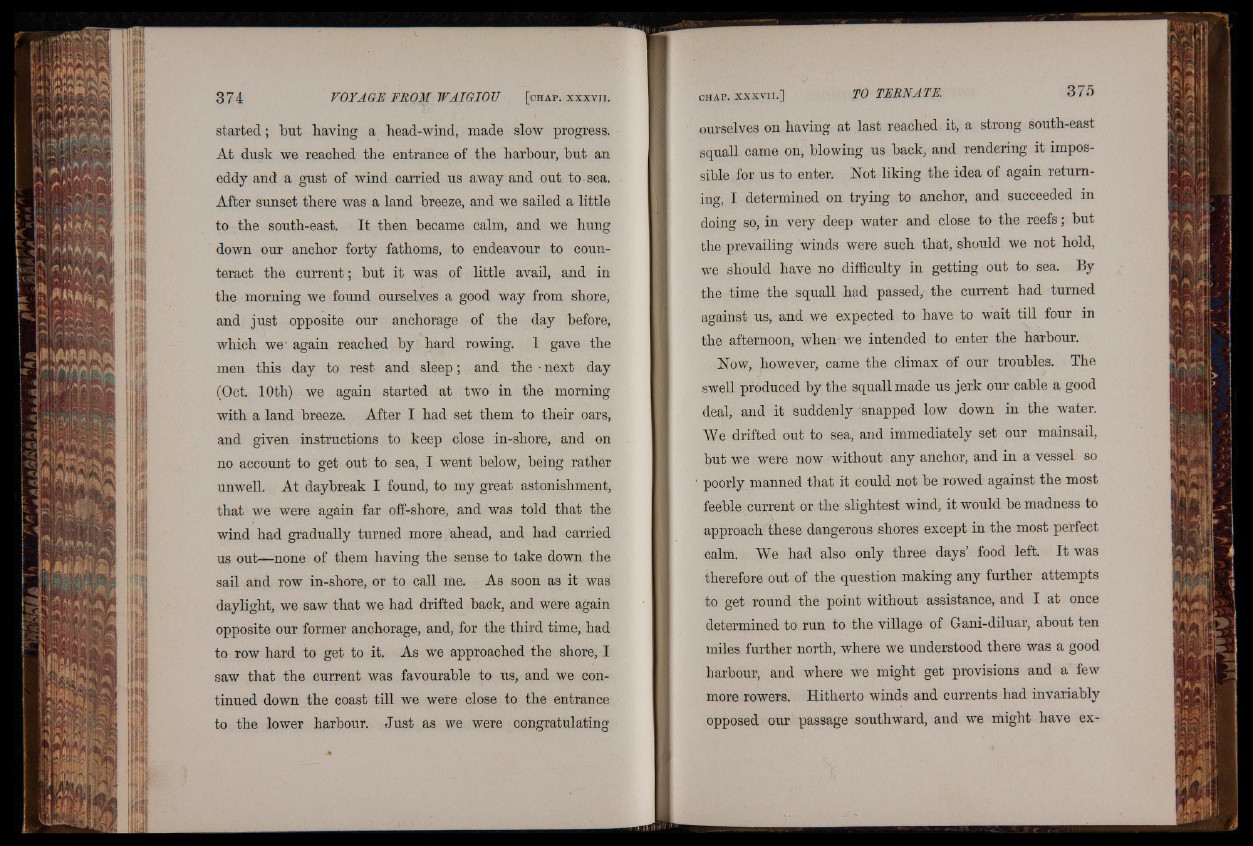
started; but having a head-wind, made slow progress.
At dusk we reached the entrance of the harbour, but an
eddy and a gust of wind carried us away and out to sea.
After sunset there was a land breeze, and we sailed a little
to the south-east. It then became calm, and we hung
down our anchor forty fathoms, to endeavour to counteract
the current; but it was of little avail, and in
the morning we found ourselves a good way from shore,
and just opposite our anchorage of the day before,
which we’ again reached by hard rowing. 1 gave the
men this day to rest and sleep; and the • next day
(Oct. 10th) we again started at two in the morning
with a land breeze. After I had set them to their oars,
and given instructions to keep close in-shore, and on
no account to get out to sea, I went below, being rather
unwell. At daybreak I found, to my great astonishment,
that we were again far off-shore, and was told that the
wind had gradually turned more ahead, and had carried
us out—none of them having the sense to take down the
sail and row in-shore, or to call me. As soon as it was
daylight, we saw that we had drifted back, and were again
opposite our former anchorage, and, for the third time, had
to row hard to get to it. As we approached the shore, I
saw that the current was favourable to us, and we continued
down the coast till we were close to the entrance
to the lower harbour. Just as we were congratulating
ourselves on having at last reached, it, a strong south-east
squall came on, blowing us back, and rendering it impossible
for us to enter. Not liking the idea of again returning,
I determined on trying to anchor, and succeeded in
doing so, in very deep water and close to the reefs; but
the prevailing winds were such that, should we not hold,
we should have no difficulty in getting out to sea. By
the time the squall had passed, the current had turned
against us, and we expected to have to wait till four in
the afternoon, when' we intended to enter the harbour.
Now, however, came the climax of our troubles. The
swell produced by the squall made us jerk our cable a good
deal, and it suddenly snapped low down in the water.
We drifted out to sea, and immediately set our mainsail,
but we were now without any anchor, and in a vessel so
poorly manned that it could not be rowed against the most
feeble current or the slightest wind, it would be madness to
approach these dangerous shores except in the most perfect
calm. We had also only three days’ food left. I t was
therefore out of the question making any further attempts
to get round the point without assistance, and I at once
determined to run to the village of Gani-diluar, about ten
miles further north, where we understood there was a good
harbour, and where we might get provisions and a few
more rowers. Hitherto winds and currents had invariably
opposed our passage southward, and we might have ex